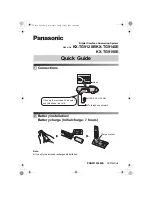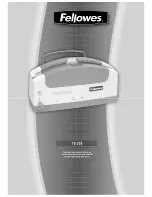
– 51 –
23. TROUBLES IN SEWING AND CORRECTIVE MEASURES
Troubles
Causes
Corrective measures
1. Thread breakage
(Thread frays or is worn
out.)
(Needle thread trails 2
to 3 cm from the wrong
side of the fabric.)
1
Thread path, needle point, hook blade
point or bobbin case resting groove on
the throat plate has sharp edges or burrs.
2
Needle thread tension is too high.
3
Bobbin case opening lever provides an
excessive clearance at the bobbin case.
4
Needle comes in contact with the blade
point of hook.
5
Amount of oil in the hook is too small.
6
Needle thread tension is too low.
7
Thread take-up spring works excessively
or the stroke of the spring is too small.
8
Timing between the needle and the hook
is excessively advanced or retarded.
™
Remove the sharp edges or burrs on
the blade point of hook using a
fi
ne
emery paper. Buff up the bobbin case
resting groove on the throat plate.
™
Decrease the needle thread tension.
™
Decrease the clearance provided
between the bobbin case opening lever
and the bobbin.
Refer to “18. ADJUSTING THE BOBBIN
CASE OPENING LEVER”.
™
Refer to “16. NEEDLE-TO-HOOK
RELATION”.
™
Adjust the amount of oil in the hook
properly.
Refer to “4. LUBRICATION”.
™
Increase the needle thread tension.
™
Decrease the tension of the spring and
increase the stroke of the spring.
™
Refer to “16. NEEDLE-TO-HOOK
RELATION”.
2. Stitch skipping
1
Timing between the needle and the hook
is excessively advanced or retarded.
2
Pressure of the presser foot is too low.
3
The clearance provided between the top
end of the needle eyelet and the blade
point of hook is not correct.
4
Hook needle guard is not functional.
5
Improper type of needle is used.
™
Refer to “16. NEEDLE-TO-HOOK
RELATION”.
™
Tighten the presser spring regulator.
™
Refer to “16. NEEDLE-TO-HOOK
RELATION”.
™
Refer to “17. ADJUSTING THE HOOK
NEEDLE GUARD”.
™
Replace the needle with one which is
thicker than the current needle by one
count.
3. Loose stitches
1
Bobbin thread does not pass through the
tension spring of the inner hook.
2
Thread path has been poorly
fi
nished.
3
Bobbin fails to move smoothly.
4
Bobbin case opening lever provides too
much clearance at the bobbin.
5
Bobbin thread tension is too low.
6
Bobbin has been wound too tightly.
™
Thread the bobbin thread correctly.
™
Remove rough parts with a
fi
ne emery
paper or buff it up.
™
Replace the bobbin or hook with a new
one.
™
Refer to “18. ADJUSTING THE BOBBIN
CASE OPENING LEVER”.
™
Increase the bobbin thread tension.
™
Decrease the tension applied to the
bobbin winder.








































